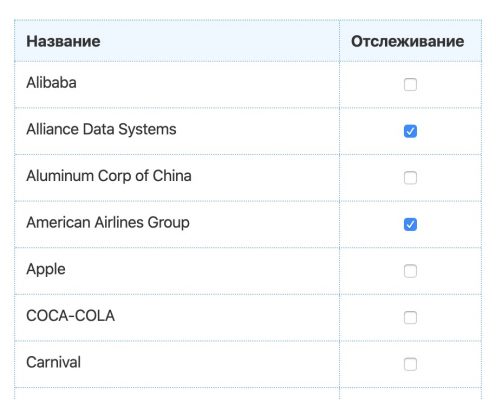the importance of communication in the world of information technology
I work as an internal communications manager in an IT company, which clearly “screams” about my extroversion and predisposition to software, so at work I easily find a common language with employees, I feel the pains and needs of the interlocutor, I delve into the situation from the outside and I know how to negotiate. How did I learn this? No way, that's how I feel) But still, why is it so important (and profitable) to simply be able to communicate correctly in our time?

IT companies are still staffed by people, not artificial intelligence, which means live communication is still important!
An interview is stressful for anyone, and for an introvert it is torture, but the more you practice this skill, the easier it will be to pass this test each time.
Already at this point, you need to be able to “like” the interlocutor, namely the recruiter, the person who directly influences the further course of events. Are you interviewing for a technical specialty, but could not log into Skype? Already a minus to your karma, you are a techie. But even such a jamb can fade into the background if you have charisma. An example, but at the same time an anti-example, can serve as an excerpt from an interview from the film “Personnel”. Two candidates, former salespeople, want to try their luck and get an internship at Google, without having experience in IT, but having a fake resume, and (spoiler) they pass the interview. You will say, but this is a movie, in reality this cannot happen. But to your great surprise, in reality there are such cases.

Nowadays, many IT companies are taking a course on “cultivating” specialists, the main thing for them is zeal and desire to learn, invest in work and develop. Of course, the situation in the film is exaggerated, but it is possible. For example, at “Lofty.” we often hire specialists “for growth”, share our expertise, experience and invest in development. So, we recently took three IT specialists for an internship after training at Product Star, we are starting to cooperate with Yandex.Practicum, and we post vacancies for juniors on career sites. However, rely on charisma, but don’t be lazy yourself, you need to prepare for the interview in advance, read about the company and study the vacancy in detail. At this stage, you need to learn to listen carefully, ask the right questions and agree on a salary – these are also soft skills that are pumped up exclusively in practice.
Advice: go to as many interviews as possible, don't be afraid to submit a resume for a vacancy that is “not your level”, and then don't forget to ask HR for detailed feedback. Remember: by agreeing to low salaries because you lack confidence in your abilities, you are lowering the salary market. You can do anything!
Smooth onboarding starts with open communication with colleagues
Adaptation is the stage of adaptation to the company's system; it is more difficult than an interview, but proper communication will help you survive this period successfully.
So, let's move on: you managed to pass the interview, let's say you had relevant experience and a stunning resume, it would seem that you got the job (hurray!), but this is only the beginning. Adaptation awaits you ahead… On average, the employee's adaptation period coincides with the probationary period, and is 3 months. This is the hardest time: a new team, tasks, workplace, establishing contact with the manager and colleagues. All this is stress for anyone, even a well-prepared organism.
Let's return to the film, and how do our heroes act? They try to get to know their new “colleagues”. It doesn't always go smoothly, but here's their “superpower” (read as soft skill): not to give up in a new team when there are refusals and failures, to look for “their” people in a large corporation.
At Lofty, we noticed that due to exponential growth, we had problems with communication between employees, often new introverts never manage to make friends at work, the level of isolation in the office is gradually growing, and some “old-timers” in the company mourn the former “lamp-like” and sometimes cannot establish contact with new colleagues at the very beginning. Therefore, we are now actively working on mentoring projects, developing welcome trainings and inviting newcomers to participate in our internal communities. Now, the “English Speaking Club” and cyber tournaments are especially popular with us, and in the summer we hold a large-scale Summer Camp.

Our strength and foundation are people, their knowledge, skills and talents. If the company does not have an adaptation and mentoring system, you have to establish contact yourself, learn to get acquainted and exchange information. You can start with a colleague at the next table or ask your HR to introduce you to the team, go to lunch or have coffee together. The first couple of weeks are an indicator of how well you and the company (team) fit together, so you need to try to understand your tasks and goals as much as possible, and this can only be achieved through a conversation with your manager. Gather your will into a fist, write down your questions in advance and go for it!
Advice: ask your manager for a 1:1 meeting if it is not on the calendar by default, ask about his expectations for you, and to make friends, do not hesitate to invite colleagues for coffee or lunch, attend corporate events after work: board games (tinctures), cyber tournaments, conversation/book clubs, and so on.
“Explore, communicate, participate!” During the assimilation period, the foundation for your future in this company is created.
Assimilation, complete immersion into the company’s environment and culture, goes more smoothly than the previous stages, but the main thing here is to remember to keep your finger on the pulse and not relax.
The probationary period is over, now comes the era of assimilation, which lasts about a year. The period when you are already “one of them”, but still little is known about you, and it's time to fix it. Sitting and silently pumping up hard drives is good, but it is much better to approach the manager and find out about further development in the company. Perhaps the company has DevRel, who will help you start writing articles, or you can find out about planned conferences from the manager and participate in them, ask HR about new projects, maybe your skills will be useful there. By the way, articles are a great opportunity to share your experience, talk about your work, structure your knowledge and increase your recognition both in the company and outside it. Do not be afraid to find out how to raise your salary, when you can take a Performance Review and update the pool of tasks and goals for the next six months / year.
Unfortunately, in the film “Frames” we will not see our heroes in the era of assimilation, and the second part is not expected, so we can only assume that these daredevils will come up with more than one cool project and will help new employees adapt.
Advice: Don't sit in a “warm place”, start getting out of your comfort zone, write articles, increase your knowledge of the company and your value, start finding like-minded people, build your communities within the company and don't be afraid to talk about a promotion.

Accumulate and use your life experience here and now, don’t put it off like grandma’s tea set “for later”.
To sum it up, I will repeat the main idea of the article in one paragraph. For me, software is not a skill that we can get from books and articles, it is life experience that we accumulate throughout our lives. When you communicate with colleagues, friends, family, go to a bar together, to quizzes, study other people's experience and share yours. You can be a genius, but no one will know about your genius if you do not tell about it correctly. Start small, share your thoughts with colleagues, and then, who knows, maybe you will like it, and you will try yourself as a speaker at a conference.
Sharing experiences and making new acquaintances has been embedded in us since ancient times, it was important for survival, even when people could not speak. And now we are re-learning to use these behavioral habits, adapting them to our age. So remember, all this is already embedded in you, you just need to start strengthening these skills in practice.
Dear readers, tell us, do you find it difficult to communicate with colleagues and do you devote time to improving this skill?






